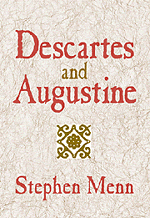6 - Isolating the soul and God
Published online by Cambridge University Press: 04 August 2010
Summary
Isolating the rational soul
The second and third Meditations belong together as Descartes' attempt to prove the positive part of the Meditations' general thesis that God and the soul are the best known of all things, and are therefore the appropriate principles of philosophy. Descartes had argued in the first Meditation that we cannot know bodies without first knowing God and the soul; he now attempts to show that we can have some knowledge of God and the soul without making any assumptions about bodies. The second Meditation is actually entitled “of the nature of the human mind, that it is better known than the body,” and the third Meditation makes the same claim about God.
In both the second and the third Meditations, Descartes is adapting the line of thought that Augustine uses, in Confessions VII and De Libero Arbitrio II and elsewhere, to bring us to knowledge, first of the soul, and then of God. Descartes' differences from Augustine arise from his attempt to show that the cognitiones of soul and God are the first, that is, both that these are independent of all other knowledge, and that no other cognitiones are similarly independent. Although the Confessions simply narrate an intellectual “vision” of God, in the De Libero Arbitrio Augustine tries to prove to Evodius that God exists, starting from Evodius' acknowledgment that he himself exists.
- Type
- Chapter
- Information
- Descartes and Augustine , pp. 245 - 300Publisher: Cambridge University PressPrint publication year: 1998

